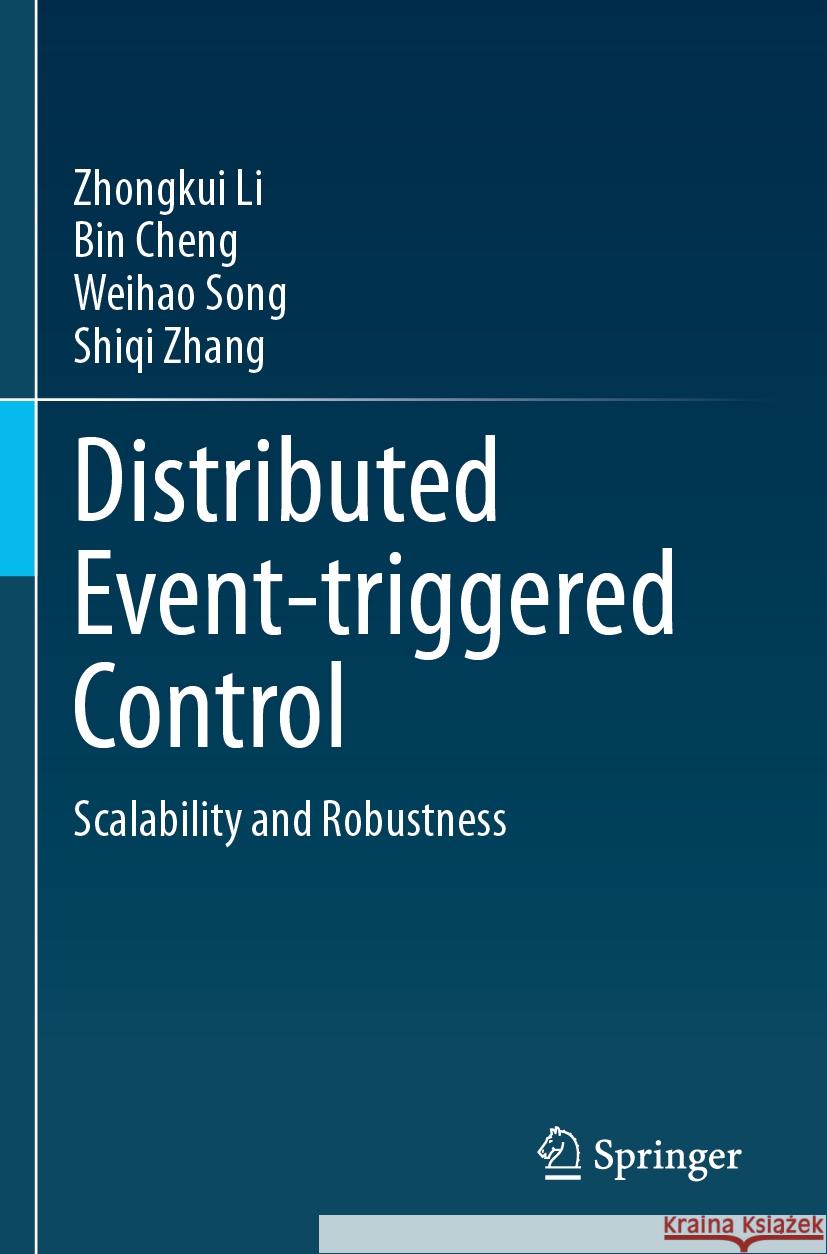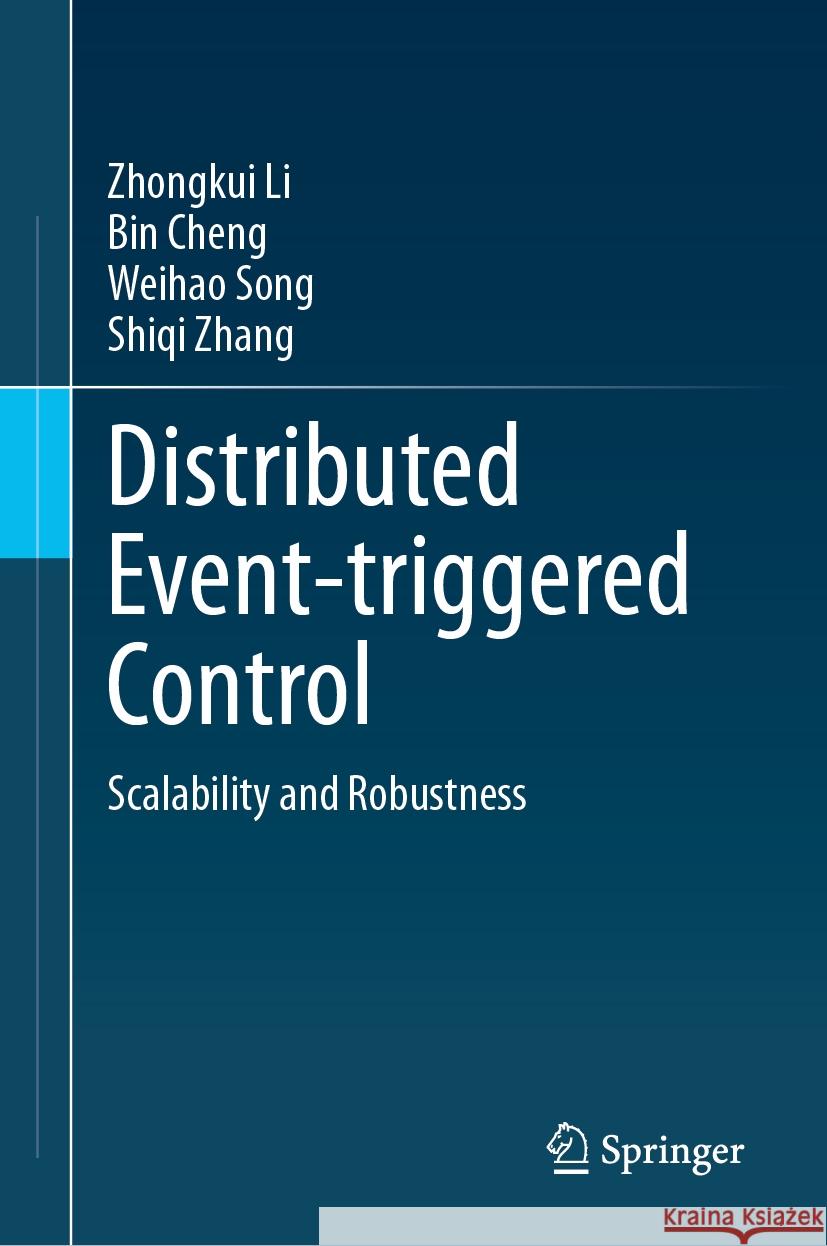topmenu
Wyniki wyszukiwania:
wyszukanych pozycji: 2
 |
Distributed Event-triggered Control
ISBN: 9789819981724 / Angielski / Miękka / 2024 Termin realizacji zamówienia: ok. 16-18 dni roboczych. This book focuses on distributed event-triggered control of multi-agent systems, in which the event-triggering mechanism is utilized to reduce the communication frequencies in order to compensate for constrained network bandwidths, an aspect that poses significant challenges for distributed control design. The book summarizes the authors’ original, systematic contributions on scalability and robustness, two core issues in distributed event-triggered control. Specifically, the book presents fully distributed adaptive event-triggered control laws; as they rely on neither continuous...
This book focuses on distributed event-triggered control of multi-agent systems, in which the event-triggering mechanism is utilized to reduce th...
|
cena:
563,56 |
 |
Distributed Event-Triggered Control: Scalability and Robustness
ISBN: 9789819981694 / Angielski Termin realizacji zamówienia: ok. 16-18 dni roboczych. |
cena:
563,56 |










